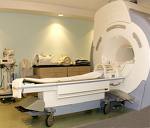According to a recent research, pediatricians, whose patients are undergoing brain MRI, are in need of getting more  information on how to deal with benign abnormalities, which are not likely to cause any harm, appearing on the scan. The research was carried out by a team at Johns Hopkins Children's Center. The research was published online June 14 in the journal Pediatrics.
information on how to deal with benign abnormalities, which are not likely to cause any harm, appearing on the scan. The research was carried out by a team at Johns Hopkins Children's Center. The research was published online June 14 in the journal Pediatrics.
John Strouse, M.D., Ph.D., a hematologist at Hopkins Children's, and senior investigator, said "Doctors need to figure out what, if anything, they want to share with patients about such findings because they seldom require urgent follow-up," Dr. Strouse and his team conducted a large study to detect the frequency and type of unexpected brain findings in children undergoing MRI tests for reasons unrelated to such benign anomalies. The most common reasons for requesting MRI scans are seizures and headaches.
In this study, patients at Johns Hopkins Children's Center were having sickle cell disease and the majority of them were African Americans. These patients underwent brain MRI scans prior to participating in this study. The researching team confirmed that among the brain abnormalities discovered in the study, none were related to the patients' condition. The latter note means that such brain abnormalities may occur in other healthy children. The study involved 953 children, 63 of them (6.6%) showed 68 abnormalities on their brain MRI scans. Yet, the majority of them were not in need of any follow up, medical intervention, or treatment. Only 6 children (0.6%) were requiring immediate follow up. In those children, MRI scans showed slowly progressing tumor and structural defect called Chiari malformation type 1. The latter is condition where brain grows into the spinal canal, and none of those six children showed any symptoms of Chiari when they were examined.
The study noted, according to Dr. Strouse, that pediatricians are to gain more information on how to deal with such abnormal brain findings in brain MRI scans, as they are not harmful and do not need any further tests or examinations. Lori Jordan, M.D., Ph.D., a pediatric neurologist at Hopkins Children's Center, commented "Helpful as it is, imaging technology can open a Pandora's box, sometimes showing us things we didn't expect to see and are not sure how to interpret,"



